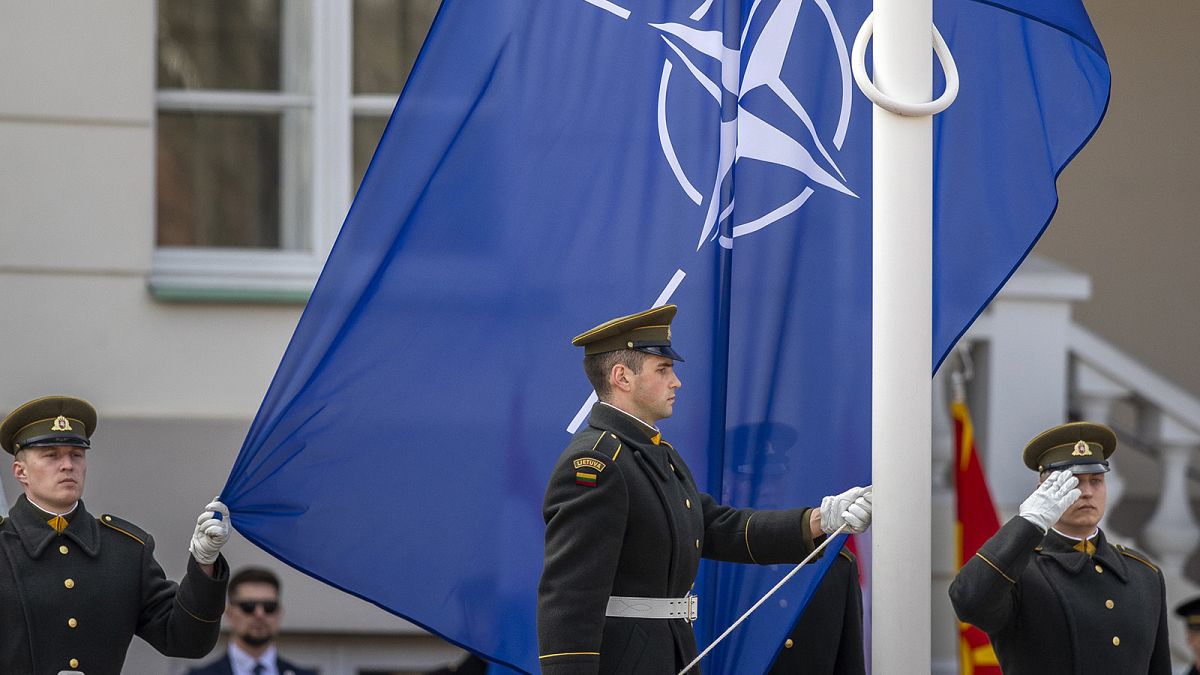Baltic leaders reacted warily on Wednesday to reports that Russia could revise the borders of its territorial waters in the region.
Leaders around the Baltic Sea reacted warily on Wednesday to reports that Russia could revise the borders of its territorial waters in the region, with Lithuania’s foreign minister calling it an “obvious escalation” that must be met with an “appropriately firm response.”
In a draft proposal reported by some Russian media, Russia’s Defence Ministry suggests updating the coordinates used to measure the strip of territorial waters off of its mainland coast and that of its islands in the Baltic Sea.
The existing coordinates were approved in 1985, the ministry said, adding they were “based on small-scale nautical navigation maps” and don’t correspond to the “modern geographical situation”.
It wasn’t immediately clear from the draft whether the proposed changes would shift the border or merely clarify it.
Swedish Prime Minister Ulf Kristersson said Russia had signed a United Nations convention that regulates how to make such changes. “Both we and Finland assume that Russia — which is a signatory party to that convention — lives up to that responsibility,” he said, according to Swedish news agency TT.
If Russians were to challenge borders, “then Russia violates a UN convention, then Russia has the whole world against it,” Finland’s Foreign Minister Elina Valtonen said, according to Finnish broadcaster YLE.
She said, however, that it was likely a routine act by Russia and not a provocation.
Finnish President Alexander Stubb wrote on X that Russia had not been in contact with Finland on the matter. “Finland acts as always: calmly and based on facts,” he wrote.
Also on X, Lithuanian Foreign Minister Gabrielius Landsbergis asserted that Russia was “attempting to spread fear, uncertainty and doubt about their intentions in the Baltic Sea.” There has been great concern in Lithuania about Russian troops’ latest gains in northeastern Ukraine.
German Defence Minister Boris Pistorius, who was on a visit to Lithuania on Wednesday, echoed Landbergis remarks saying that “whatever this was or actually is, it appears to be another example of the thoroughly perfidious kind of hybrid warfare that Putin is practicing,” German news agency dpa reported.
The Baltic News Service said Lithuania summoned the Russian representative for a detailed explanation.
However, Russia’s Interfax news agency later on Wednesday cited an unnamed military-diplomatic source as saying Moscow does not intend to revise the border or the width of its territorial waters.
Kremlin spokesman Dmitry Peskov told reporters there was “nothing political” in the Defence Ministry’s proposal.
“You see how tensions and the level of confrontation are escalating, especially in the Baltic region. This requires appropriate steps from our relevant bodies to ensure our security,” Peskov said.
The proposal for draft legislation was published on an official government website but appeared to have been deleted on Wednesday. It wasn’t immediately clear why.
Since Russia’s full-scale invasion of Ukraine in early 2022, Finland and Sweden have joined NATO. The Baltic Sea — Russia’s maritime point of access to the city of St. Petersburg and its Kaliningrad enclave — is now almost surrounded by military alliance members.
Kaliningrad is sandwiched between Lithuania to the north and east and Poland to the south. It is home to the Russian Navy’s Baltic Fleet.

